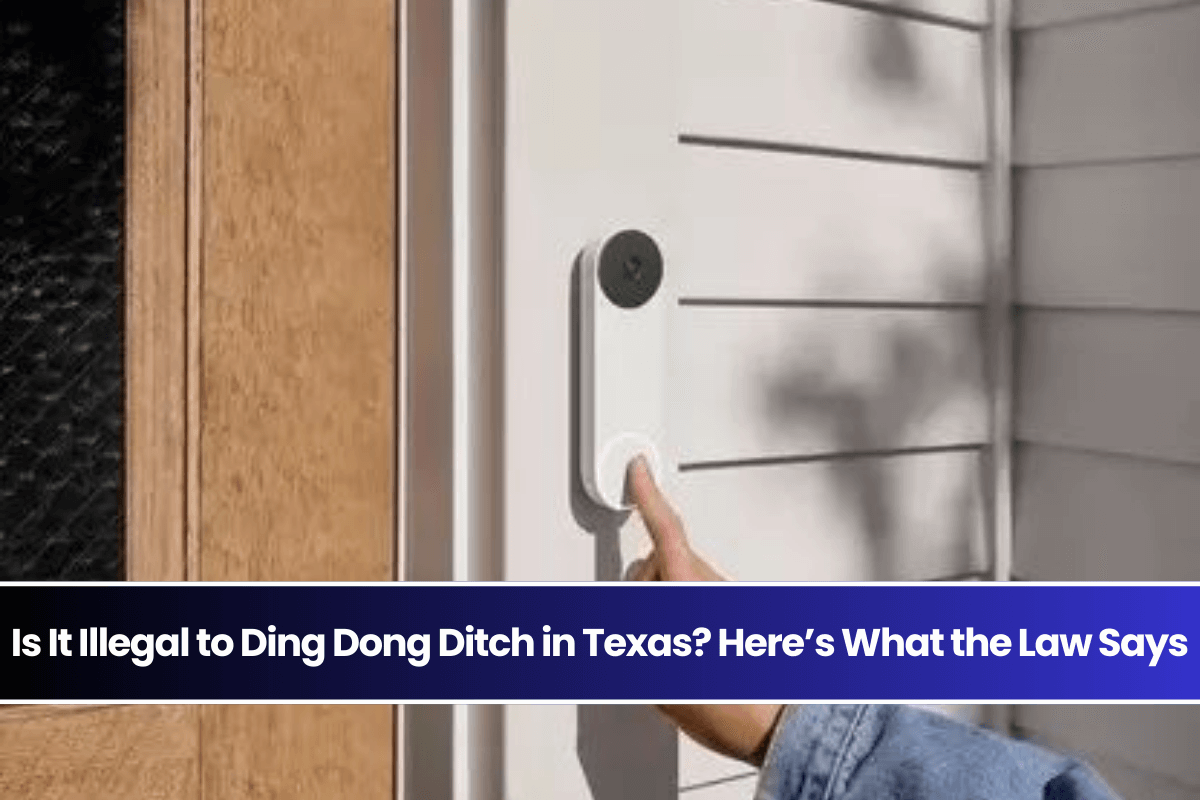In Texas, the act of “ding dong ditching,” which involves ringing a doorbell and then running away before the occupant answers, can lead to legal consequences, although there is no specific law that explicitly addresses this behavior. Here’s what you need to know about the potential legal implications of ding dong ditching in Texas.
Legal Considerations
Disorderly Conduct
Ding dong ditching could potentially fall under the category of disorderly conduct as defined by Texas Penal Code § 42.01.
This statute prohibits various forms of disruptive behavior, including making unreasonable noise in a public place or engaging in conduct that could alarm or annoy others.
While ding dong ditching may seem harmless, it could be interpreted as creating a disturbance, especially if it occurs repeatedly or causes distress to the occupants.
Harassment
If the act is perceived as annoying or threatening, it could also be classified as harassment under Texas law. Harassment involves actions intended to annoy, alarm, or abuse another person.
If someone feels threatened or harassed by repeated ding dong ditching, they could potentially report it to law enforcement, leading to further legal action.
Trespassing
In some cases, if a person enters private property to ring the doorbell and run away, they could be charged with trespassing.
Texas law defines trespassing as entering or remaining on property without consent. If the homeowner decides to take legal action against someone for repeatedly trespassing on their property to engage in this prank, it could result in civil or criminal penalties.
Potential Consequences
- Misdemeanor Charges: Depending on the circumstances and local enforcement policies, engaging in ding dong ditching could lead to misdemeanor charges related to disorderly conduct or harassment.
- Civil Liability: Homeowners may seek civil remedies if they feel that their peace has been disturbed or if property damage occurs as a result of such pranks.
- Law Enforcement Response: If complaints are made, law enforcement may issue warnings or citations to individuals engaging in this behavior.
Conclusion
While ding dong ditching might be viewed as a harmless prank by some, it carries potential legal risks in Texas. The actions can be interpreted as disorderly conduct, harassment, or even trespassing depending on the situation and how they affect the occupants of the home.
Individuals considering such pranks should be aware of these risks and understand that what may seem like innocent fun can lead to unintended legal consequences.
Sources
- https://www.peeklawgroup.com/blog/2019/october/is-it-illegal-to-make-prank-phone-calls-/
- https://www.findlaw.com/legalblogs/criminal-defense/can-prank-calls-get-you-arrested/
- https://versustexas.com/blog/swatting-in-texas/
- https://statutes.capitol.texas.gov/docs/PE/htm/PE.42.htm
- https://www.reddit.com/r/legaladvice/comments/167wqp4/i_made_a_prank_call_to_texas_will_i_be_charged/
